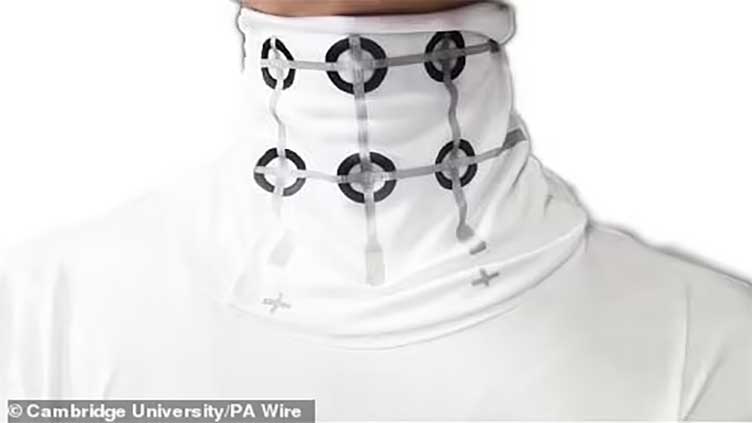Scientists develop AI nightwear for better sleep

Technology
The sensors embedded in the smart pyjamas can identify six different sleep states
(Web Desk) - There are few things as cosy as lounging around at home in your pyjamas.
And, apparently, six in ten of us put them on as soon as we walk through the door.
But in case you needed any more encouragement, experts are working on nightwear that can help you sleep better.
And they could even – over time – help lower the risk of heart attacks, strokes and diabetes.
Scientists at the University of Cambridge have made 'smart pyjamas', utilising sensors trained with artificial intelligence, that can monitor disorders like sleep apnoea from the comfort of your bed.
They said it has an 'ultra-sensitive sensor array directly printed on the collar, capable of identifying multiple sleep patterns' by detecting vibrations.
The washable smart pyjamas were designed as an alternative to traditional sleep monitoring systems that are 'complex and inconvenient for daily use', including sticky patches, cumbersome equipment or a visit to a specialist sleep clinic.
Research leader Professor Luigi Occhipinti, from the Cambridge Graphene Centre, said: 'Poor sleep has huge effects on our physical and mental health, which is why proper sleep monitoring is vital.'
He added: 'We need something that is comfortable and easy to use every night but is accurate enough to provide meaningful information about sleep quality.'
Sleep behaviours such as mouth breathing, sleep apnoea and snoring are major contributors to poor sleep quality and can lead to chronic conditions such as cardiovascular disease, diabetes and depression.
The sensors embedded in the smart pyjamas can identify six different sleep states with 98.6 per cent accuracy while ignoring the regular sleep movements of tossing and turning, according to the research published in the journal Proceedings of the National Academy of Sciences.
'Sleep is so important to health, and reliable sleep monitoring can be key in preventative care,' said Professor Occhipinti.
'Since this garment can be used at home, rather than in a hospital or clinic, it can alert users to changes in their sleep that they can then discuss with their doctor.'
Home devices, such as sleep tests, focus on a single condition and are bulky or uncomfortable.
Meanwhile wearable devices such as smartwatches, although more comfortable to wear, can only look at sleep quality and are not effective for accurately monitoring disordered sleep, according to the researchers.
The team behind the project said the 'proposed smart garment has the potential to become a new benchmark in sleep monitoring technology'.


